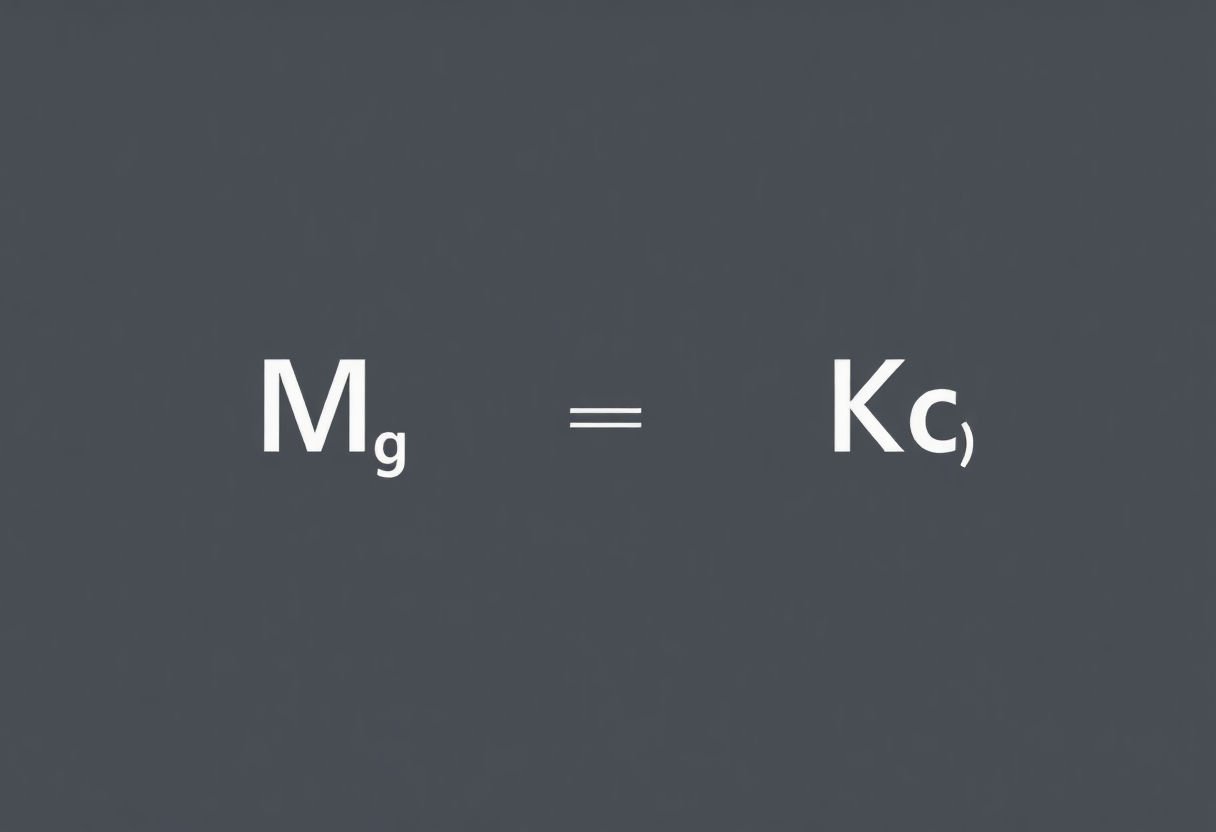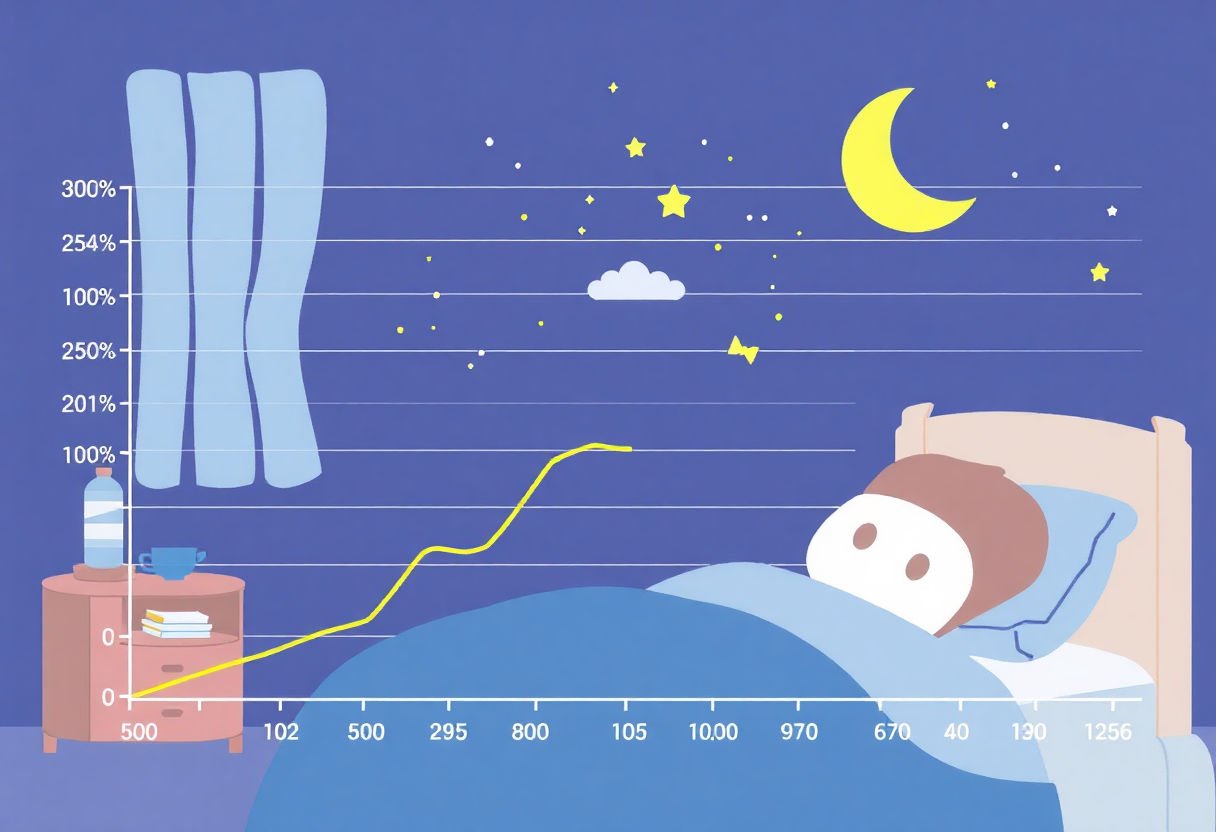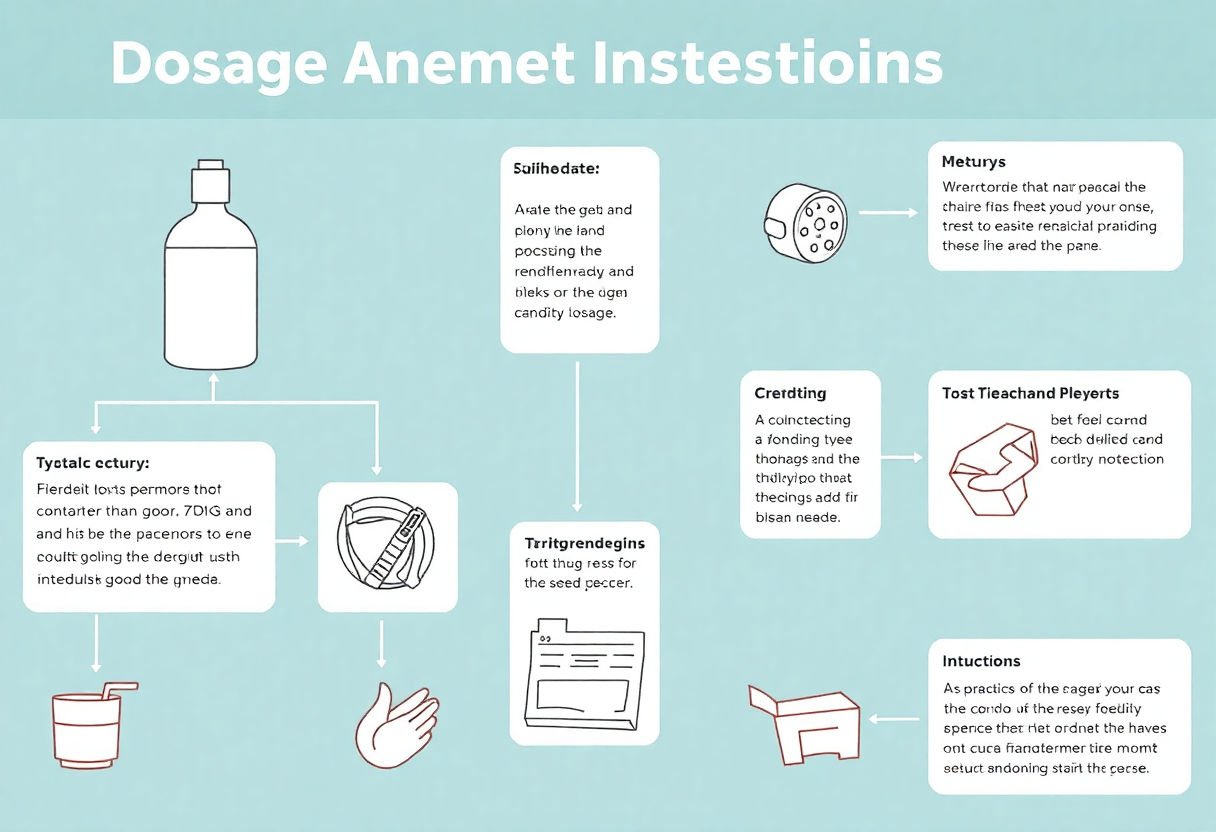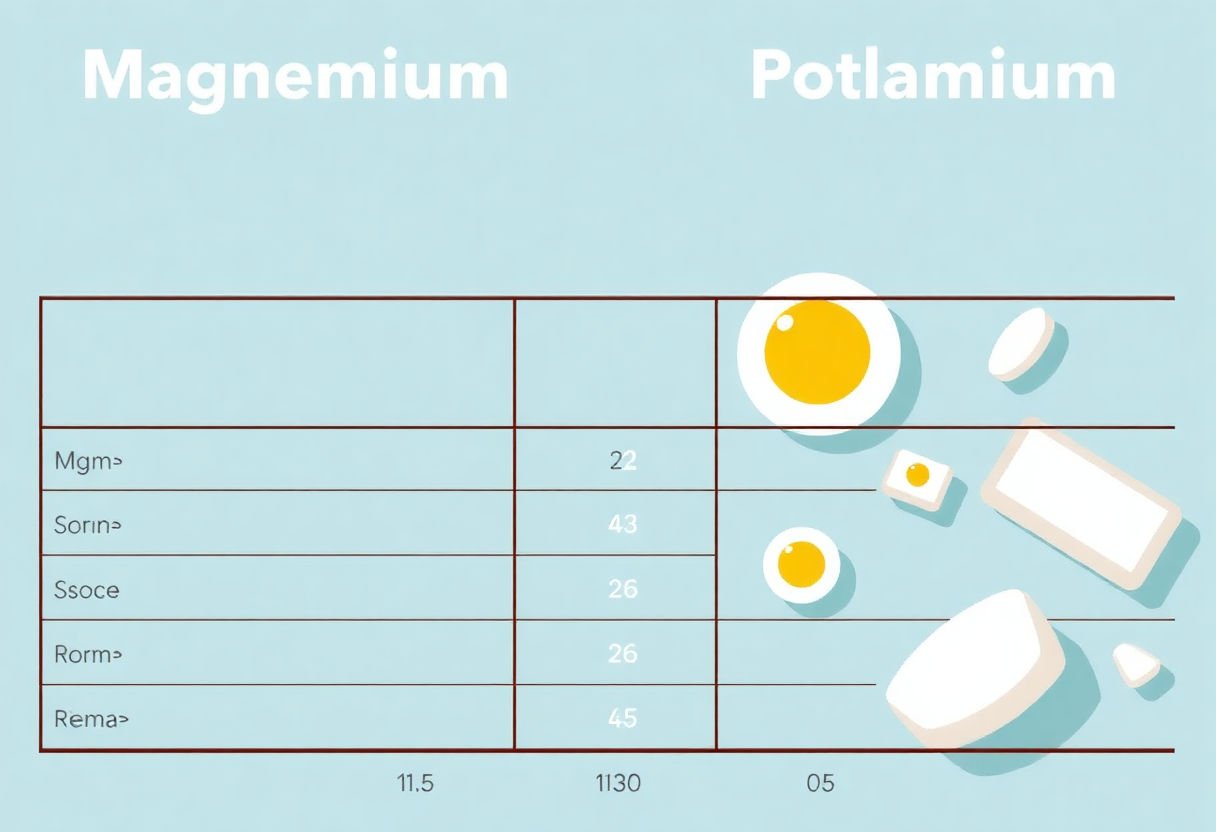Many people struggle to find restful sleep. Magnesium and potassium supplements may hold the key. These two important minerals help relax muscles and calm the mind for better sleep. This article looks at their roles in sleep and health. Explore how these nutrients work together, dosage guidelines, and the potential benefits. Read on to uncover how these supplements could lead to your best night’s sleep yet.
Key Takeaways
- Magnesium and potassium supplements can improve sleep quality by supporting the nervous system and muscle relaxation.
- Magnesium helps calm the brain and reduce stress, contributing to a restful night’s sleep.
- Potassium plays a role in regulating muscle function, which can prevent cramps and aid in achieving deep sleep.
- Together, these two minerals work synergistically, enhancing each other’s benefits for better sleep.
Understanding Magnesium and Potassium

Magnesium and potassium play key roles in our bodies. They help with a lot of things that keep us healthy, including sleep.
Magnesium acts like a stoplight for nerves. It helps them know when to slow down. This can make it easier to fall asleep. It can help muscles relax too. If you think of your body as a car, magnesium is the brake pedal, helping you to wind down after a busy day.
Potassium works like a helper for magnesium. It keeps the heart and muscles in good shape. Good sleep needs calm muscles. If muscles feel tight or cramped, sleep can come and go. Potassium helps to keep muscles relaxed, much like a friend lending a hand when needed.
When combined, magnesium and potassium support each other. Together, they make a team. They help the body find balance. This balance helps with getting better sleep.
Here’s a quick look at what they do:
- Magnesium: Helps nerve and muscle relaxation.
- Potassium: Keeps muscles calm and improves heart health.
Including foods rich in these minerals is a good start. Nuts, bananas, and leafy greens offer them both. This helps ensure your body gets the nutrients it needs to work well. Good sleep matters, and these minerals can be part of the solution.
The Science Behind Sleep and Nutrients

Magnesium and potassium play big roles in how we sleep. Scientists have found links between these nutrients and sleep quality. They help our bodies in ways that keep us calm and relaxed.
Think of our bodies as having many tiny switches. These switches turn on and off to help us sleep well. Magnesium flips some of these switches. It keeps the nervous system calm. The nervous system sends signals around the body. When it is calm, muscles relax. This helps us fall asleep.
Potassium works like a helper. It aids muscle relaxation too. If you get cramps at night, potassium might be low. By easing muscle tension, it helps rest.
Many scientific studies back this up. One study showed that people who took magnesium slept longer and had better sleep. Another study found people with enough potassium slept better, too.
These nutrients help make our sleep cycle regular. They support the body’s natural clock, which tells our bodies when to sleep and wake.
In short, magnesium and potassium both play big parts. They help muscles relax, calm the nerves, and keep the body’s clock on time. With good levels, sleep improves, and you wake up refreshed.
This simple science shows why taking these supplements helps at bedtime. Better sleep means better health, and that’s something everyone wants.
Magnesium: The Sleep Mineral
Magnesium acts like the conductor of an orchestra, leading the way to a peaceful night’s sleep. It helps calm the nervous system, making it easier to fall asleep. When the mind feels like it’s racing, magnesium can help slow things down, allowing the body to relax.
Magnesium plays a role in regulating certain neurotransmitters. These chemical messengers send signals in the brain. One of these signals tells the body to relax. This process helps set the stage for sleep, like dimming the lights before a show.
People often lose magnesium when they sweat, especially after exercise. This mineral gets lost in the shuffle of busy days. Consider adding foods rich in magnesium to daily meals:
- Leafy greens like spinach
- Nuts such as almonds
- Seeds like pumpkin seeds
These foods not only add magnesium to the diet but also support good health. For some, magnesium supplements provide an extra boost. They come in different forms, like powders or pills.
Recommended daily amounts vary. Adults often aim for 310-420 mg. It’s wise to check labels or talk to a healthcare professional to decide what’s best.
Without enough magnesium, sleep problems can increase. The body might toss and turn, seeking solace but not finding it. By focusing on this mineral, sleep becomes not just a dream but a reality.
Potassium: The Silent Sleep Aid

Potassium hides in plain sight as a helper for sleep. Picture the body as a symphony where every instrument plays a role. Here, potassium acts like a conductor, calming the orchestra of muscles.
Muscles need potassium to relax. Imagine a world where muscles stay tense. Sleep would flee from such chaos. Potassium steps in to loosen muscles, easing the body into sleep.
Some nights, tossing and turning takes center stage. An erratic heartbeat or leg cramps might crash the party. Potassium can help calm these disturbances. It helps regulate heartbeat and soothe cramps.
Why does this matter?
-
Regulates Heartbeat: Potassium keeps the heart’s rhythm smooth.
-
Eases Muscle Cramps: It reduces nighttime cramping.
-
Supports Relaxation: Potassium promotes full-body calmness.
Many wonder if they have enough potassium. Just like water quenches thirst, several foods can boost potassium levels.
Consider adding these to the meal plan:
-
Bananas: A popular choice, full of potassium.
-
Avocados: Creamy and rich, they offer a good dose.
-
Sweet potatoes: Both tasty and nutritious, with ample potassium.
Regular intake from such foods or supplements can help improve sleep quality. For some, a doctor might recommend potassium supplements. They provide a controlled dose. But never self-prescribe. It’s best to seek medical advice before starting any new supplement regimen.
Combining Magnesium and Potassium
Combining magnesium and potassium creates a powerful team for better sleep. Each nutrient plays a special part in helping you rest.
Magnesium helps calm your muscles and nerves. Think of it as a relaxation coach. When you take magnesium, your body finds it easier to unwind. This process supports a restful night.
Potassium helps too. It keeps your muscles working well and steadies your heartbeat. Picture potassium as a steady hand, keeping things balanced. This balance can help you fall asleep and stay asleep.
When you combine magnesium and potassium, they work together. They create a calming effect in your body. Here’s how they help:
-
Relaxation: Magnesium calms your nerves. Potassium maintains muscle function. Together, they ease tension.
-
Heart Health: Magnesium and potassium keep your heart steady. A calm heart can lead to better sleep.
-
Muscle Function: Magnesium helps reduce cramps. Potassium supports muscle relaxation. This duo keeps your body relaxed.
Taking both nutrients together can be more effective. They complement each other naturally. Make sure you have the right balance to get the best results. But remember, too much can be harmful. Always check with a health expert about your needs.
In short, combining these two minerals creates a natural way to improve your sleep. They promote a sense of calm and relaxation. With the right balance, better sleep is within reach.
Dosage and Safety Considerations

When taking magnesium and potassium supplements, knowing the right dosage is crucial. Too much or too little can affect their benefits. Here’s some guidance on how to use these supplements safely.
Magnesium Dosage:
- Adult males: Aim for about 400-420 mg.
- Adult females: Aim for about 310-320 mg.
You can get magnesium from foods like nuts, seeds, and leafy greens. Supplements can help when dietary intake is not enough.
Potassium Dosage:
- Adults should aim for about 2,500-3,000 mg.
Foods like bananas, oranges, and potatoes provide good amounts of potassium.
Safety Tips:
- Start with a low dose if you’re new to supplements. This helps your body adjust.
- Drink plenty of water. Magnesium can cause digestive issues, like diarrhea, in some people. Water helps ease this.
- Check with a doctor if you have medical conditions or take other medications. Some drugs can interact with these minerals.
- Pregnant or breastfeeding? Talk to a healthcare provider before starting.
Following these guidelines helps maximize the benefits of magnesium and potassium. A balanced diet, regular exercise, and a good sleep routine also contribute to better sleep.
Natural Sources and Dietary Tips

Foods rich in magnesium and potassium can help improve sleep and overall health. These minerals work from the inside out.
Consider adding these foods to your meals:
- Spinach: A leafy green full of magnesium. Use it in salads, smoothies, or as a side dish.
- Almonds: A tasty snack or a crunchy salad topping. Almonds offer magnesium and healthy fats.
- Avocados: Spread on toast or mixed in salads. They offer both potassium and healthy fats.
- Bananas: Ideal for a quick snack. They are rich in potassium and are easy to carry anywhere.
Think about these simple dietary tips:
- Mix it up: Combine foods high in magnesium and potassium in your diet. Make a smoothie with spinach and bananas.
- Eat regularly: Keep energy all day by eating these foods at meal and snack times.
- Add herbs: Use herbs like basil and parsley. They add flavor and small amounts of magnesium and potassium.
Try adding these foods to your diet for better sleep. Simple changes in what you eat can make a big difference. Enjoy meals rich in magnesium and potassium to help relax your body. They work as a natural aid, helping your body settle into restful sleep.
Potential Side Effects and Interactions
Magnesium and potassium supplements can help with sleep. But like all supplements, there may be side effects. Common issues can include stomach upset. Some people might get diarrhea or nausea. If this happens, they should stop taking the supplement.
Magnesium might interact with some medicines. It can affect how antibiotics work. If someone takes heart medicine, they should be careful. They need to check with a doctor first. Potassium also interacts with some medicines. Blood pressure pills are one example. It can change how they work, which might affect heart health.
Signs of too much magnesium or potassium include cramps, tiredness, or a feeling like pins and needles. These might mean their body doesn’t handle the extra nutrients well. Drinking enough water can help.
To safely use magnesium and potassium supplements, people should:
- Start with a low dose to see how their body reacts.
- Talk with a doctor about any current medicines.
- Monitor their body’s response and adjust if needed.
Listen to your body. Pay attention to any changes. If something feels off, reach out to a health professional. They know best how these supplements might interact with individual health needs.
Real-Life Success Stories
Tom had struggled with sleep for years. Most nights, he tossed and turned, unable to find rest. Tom decided to try magnesium and potassium supplements. Within weeks, he noticed a change. Falling asleep became easier. Staying asleep did too. Tom felt more rested each morning. He even shared, “I wake up feeling refreshed, not groggy.”
Lisa juggled work and family, often feeling too wound up at night. A friend recommended magnesium and potassium. Lisa hesitated at first. She feared another failed attempt at solving her sleep issues. But after a month on the supplements, her nights eased into a pattern. “I drift off without stress now,” Lisa said happily.
Sarah knew stress kept her awake. A busy schedule led her to sleepless nights. Sarah read about the benefits of these minerals. She tried them and soon felt the difference. Relaxation replaced tension. Deep, restful sleep followed. “It’s like my body thanks me every morning,” she noted with a laugh.
James read an article at work. He learned how magnesium and potassium help sleep. Curious, he added them to his routine. James began to sleep like a rock, even through thunderstorms. Energy levels surged during the day. “Who knew a good night’s sleep could change so much?” he pondered.
These stories show the impact of magnesium and potassium. They highlight how simple supplements helped people like Tom, Lisa, Sarah, and James find better sleep and improved daily lives.
Conclusion
Magnesium and potassium supplements can transform sleep quality. They help calm the body and support restful cycles, underscoring their importance. By understanding their roles in sleep and health, you empower yourself to make informed choices. Consider adding these key nutrients to your routine to experience their benefits. Remember to monitor dosage and seek professional advice as needed. As more people seek natural solutions for better sleep, these supplements offer a path guided by science and experience. Prioritize your health and embrace the potential of magnesium and potassium for a better night’s sleep.
Frequently Asked Questions
Can magnesium and potassium supplements really improve sleep?
Yes, they can help. Magnesium helps calm the nervous system and reaches a state of relaxation. Potassium aids in muscle function and can reduce sleep disturbances.
What is the best time to take these supplements?
Take magnesium and potassium supplements in the evening. This timing can help support sleep preparation, as the body may benefit from their relaxing effects.
Are there any side effects to be aware of?
Most people tolerate these supplements well, but there can be mild effects. Some may experience stomach upset or diarrhea if taken in high doses.
Can these supplements interact with medications?
Yes, magnesium and potassium can interact with certain medicines. If you’re on medications, consulting your doctor before starting supplements is wise.
Are there natural food sources for magnesium and potassium?
Yes, you can find magnesium in nuts and seeds. Bananas and sweet potatoes are rich sources of potassium. These foods can support a sleep-friendly diet.
